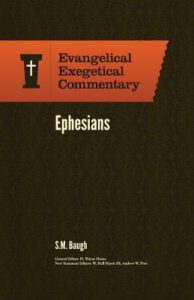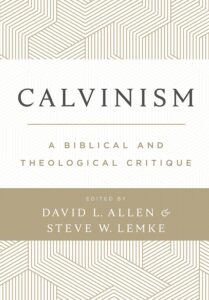
Leighton Flowers begins in his chapter, “A Critique of Unconditional Election,” published in the latest critique on Calvinism by David Allen and Steve Lemke, Calvinism: A Biblical and Theological Critique by emphasising the contrast between “the biblical choices of God which are not conditioned upon the merits of those chosen” with the Calvinist “unbiblical principle of God secret making arbitrary choices which unilaterally fixes the eternal destiny of every individual.”
A clear distinction must be drawn between the biblical choices of God, which are not conditioned upon the merits of those chosen, versus the Calvinist system, which logically entails the unbiblical principle that God secretly made arbitrary [emphasis original] choices before the foundation of the world, unilaterally fixing the eternal destiny of every individual. (CBTC 51)
Flowers concludes, I believe this doctrine, when logically and consistently applied, can be dangerous for the believer and the overall mission of the church and thus must be firmly refuted and soundly rejected as unbiblical teaching.” (CBTC 68) Continue reading “Does God Act Arbitrarily? Leighton Flowers Stigmatizes Calvinism to Win Debate”


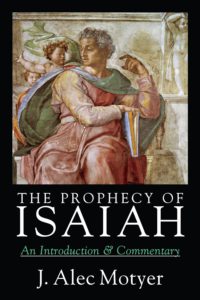
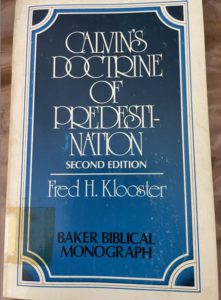 Calvin’s doctrine of predestination (election and reprobation) is not a product of philosophical deduction. It is a result of Calvin’s exegesis of Scripture. Calvin gives two concise definitions of predestination:
Calvin’s doctrine of predestination (election and reprobation) is not a product of philosophical deduction. It is a result of Calvin’s exegesis of Scripture. Calvin gives two concise definitions of predestination: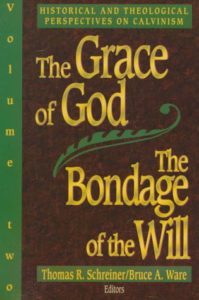
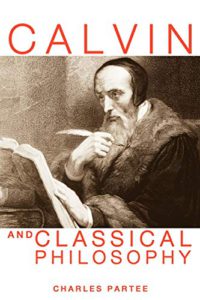 The frequent attacks on Calvinism by non-Calvinists in the Web gives the impression that Calvinism is a pernicious Christian sect. The attacks often highlight predestination as a major problem with Calvinism. The Calvinist’s doctrine of predestination is regarded as a rigid and legalistic doctrine that violates our sense of justice. It also robs the believer of his assurance of salvation.
The frequent attacks on Calvinism by non-Calvinists in the Web gives the impression that Calvinism is a pernicious Christian sect. The attacks often highlight predestination as a major problem with Calvinism. The Calvinist’s doctrine of predestination is regarded as a rigid and legalistic doctrine that violates our sense of justice. It also robs the believer of his assurance of salvation.
